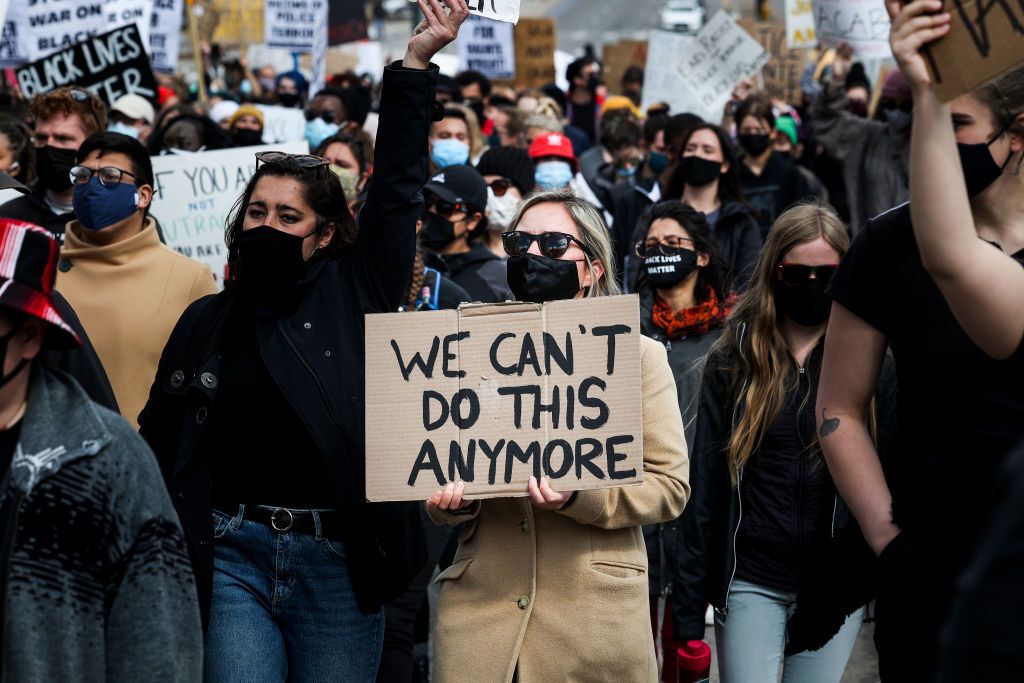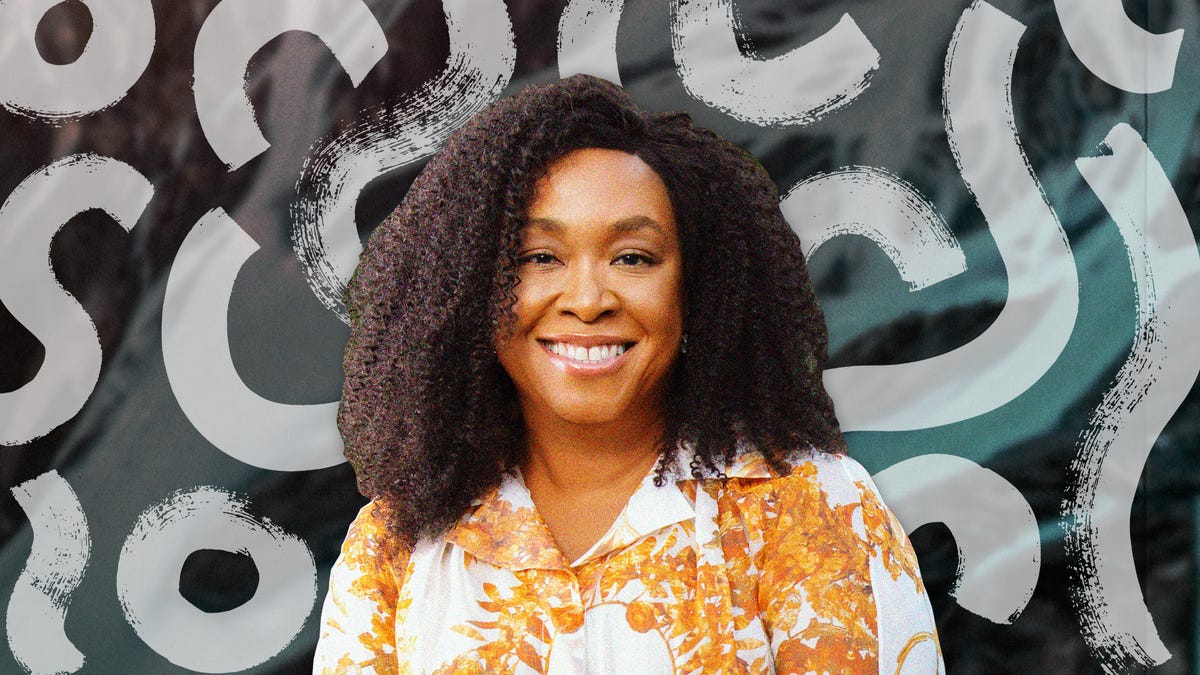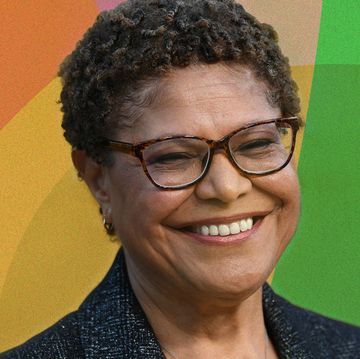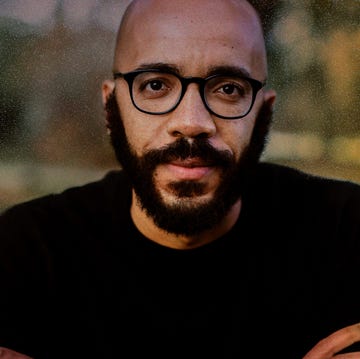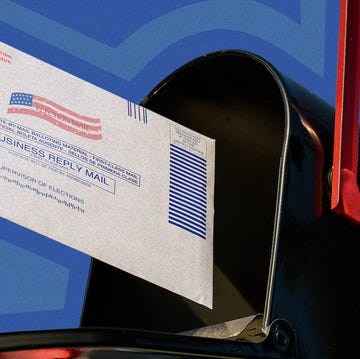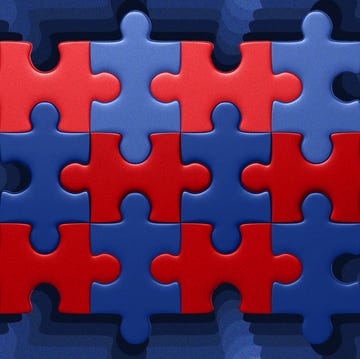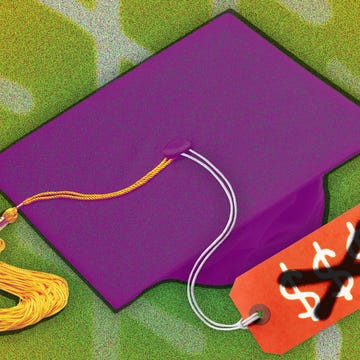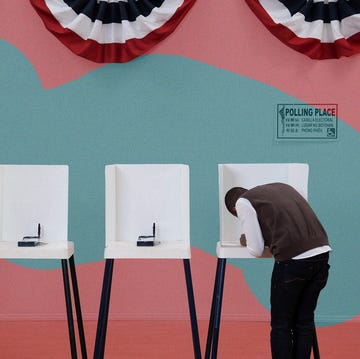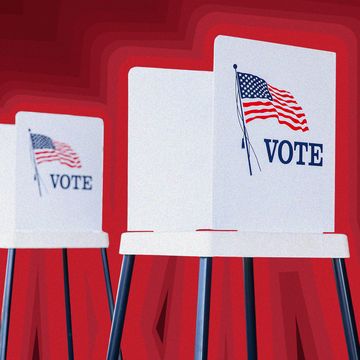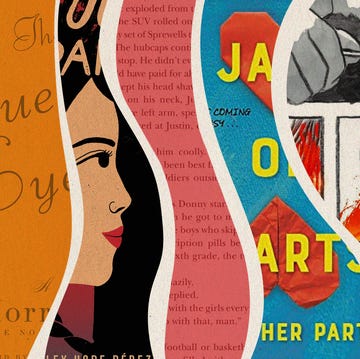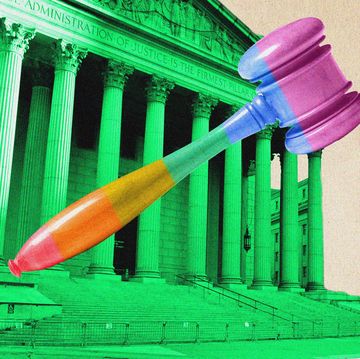On April 20, a rare thing happened. A white police officer was found guilty — on all three counts — of murdering a Black man, an act the entire world witnessed through a video captured by a terrified Black girl. Former Minneapolis police officer Derek Chauvin’s May 2020 murder of George Floyd, and Darnella Frazier’s courageous decision to film the crime, shook this country to its core. The murder led to a summer of uprisings and protests.
Now activists and prison abolitionists are wondering how we go forward from here.
Linda Sarsour, cofounder of Until Freedom, tells Shondaland, “This verdict is the exception not the rule. It was a well-deserved sense of relief for a family.” But, for Sarsour, the verdict is not true justice — abolition, which involves getting rid of both police departments and prisons, is. “Envisioning a world that is equitable and just doesn’t require police or prisons,” she says.
In a shocking illustration of how fundamentally unjust the system can be, a horrific shooting occurred just before Chauvin was found guilty. Columbus, Ohio police officer Nicholas Reardon shot and killed 16-year-old Ma’Khia Bryant, a Black girl who called police for assistance when she was being threatened.
“Black girls deserve grace and to be protected; they deserve to experience girlhood without adultification, sexualization, and criminalization,” says Nia Adams, activist and member of the Justice League NYC, who is a proponent of abolishing prisons systems. “We deserve to live in a society where police aren’t enabled to ‘sometimes kill children.’ We deserve to live in a society where we are safe, and it is ever apparent that the police do not keep us safe.”
Chauvin’s conviction was historic, but ultimately what will its impact be on Black people in the United States?
“The system will discard Chauvin as if he is one individual actor instead of a product of the racist and capitalistic nature of policing,” Tracey Corder, deputy campaign director for Action Center on Race & the Economy, says.
Some activists are asking: can there be justice for Black people killed by police within the same system that killed them to begin with?
“Justice is not having to hashtag the names of Black people because they are living safe and healthy lives,” says Corder. “It’s having everything we need in our communities without being policed, incarcerated, or surveilled. That fight continues.”
For many activists, abolishing carceral (prison) systems is the only way forward. Attempts to reform policing, like body cameras and racial-bias training, have had little impact. In 2020, there were only 18 days when police didn’t kill someone.
So, where do we go from here?
Sarsour says that in recent years abolition has become “an even more viable path,” and that people should continue to support frontline organizers in their community without having to wait until someone else is killed by police. “We need an investment in liberation and not reactionary streams of funds based on Black and brown death.”
As a core part of defunding the police and abolishing prisons, activists — like members of the Harvard Prison Divestment Campaign — believe in forcing institutions to sever themselves from investments in the prison-industrial complex.
“We need to disempower corporations who profit and invest in these systems in order to effectively end the carceral state that deters the progress and growth of our communities,” Adams says. “We need long-term investment into community-based programs and solutions that center our humanity and treat us as people and not as statistics.”
She also adds that we need to do things like pass the Breathe Act — a multi-tiered proposal of the Movement for Black Lives’ electoral-justice project — and end qualified immunity, which is described as a “judicially created doctrine that shields government officials from being held personally liable for constitutional violations — like the right to be free from excessive police force — for money damages under federal law so long as the officials did not violate ‘clearly established’ law.” This ultimately can protect those in power, even if they have broken the law.
To accomplish this, we will need legislators who are willing to do more than tweet about George Floyd and Ma’Khia Bryant to score political points. We need them to start passing real legislation.
Throughout her time in Colorado, state Representative Leslie Herod has passed numerous bills directed toward police accountability and preserving the dignity of incarcerated people — like protecting those in police custody from sexual assault and providing better access to menstrual products for women in jails and prisons. In the aftermath of Floyd’s death, she has introduced bills HB 1250 and HB 1251, which address police accountability and the use of chemical restraints.
“It’s time to move beyond hopes and prayers, beyond hashtags and commitments to do more and to do better. Beyond simply repeating the slogan ‘Black Lives Matter,’” Herod tells Shondaland. “If you are truly committed to do the real work of racial justice, we need action.”
For Herod, this work lies with the people and the lawmakers they’ve elected to represent their interests. “Law enforcement are not the only stakeholders in this conversation. Lawmakers must work with all sides — including abolitionists — to create meaningful policy change that will ensure we are all safe in our communities.”
We will never be free if police are allowed to run rampant through our communities, killing and injuring Black people with impunity. And this is a question of justice that affects all of us.
“This struggle is collective,” Adams says. “It is against a common enemy that continues to exploit, oppress, and ultimately murder us. It is our duty to fight unceasingly in solidarity for our collective liberation.”
Nylah Burton is a Denver, Colorado based writer. Follow her on Twitter @yumcoconutmilk.
Get Shondaland directly in your inbox: SUBSCRIBE TODAY
